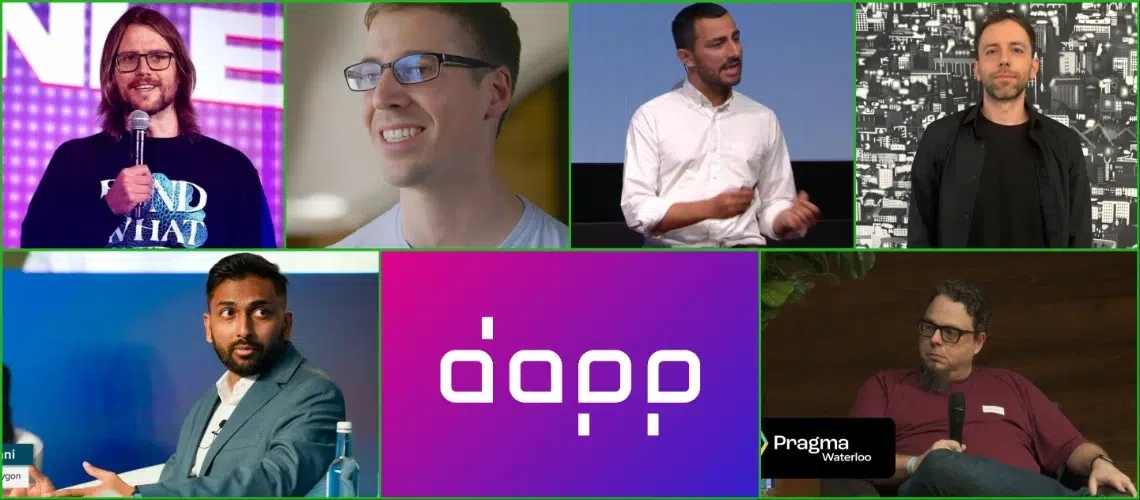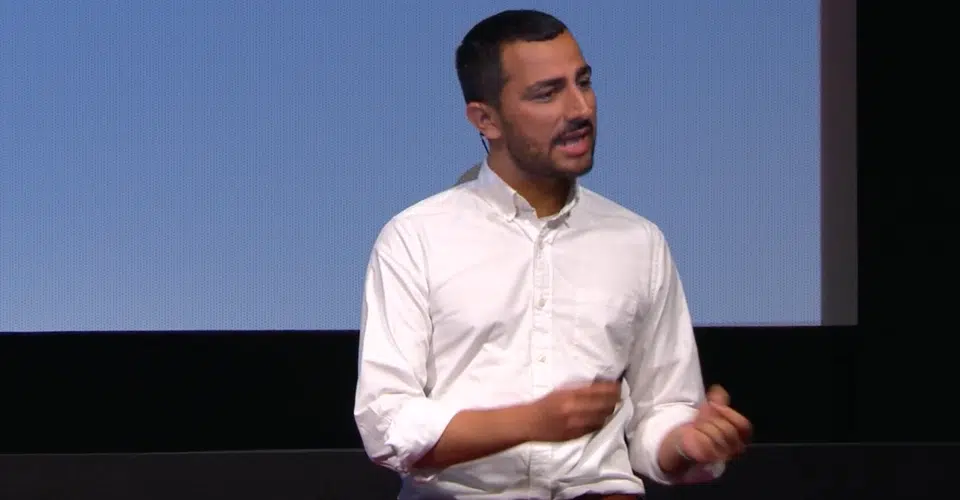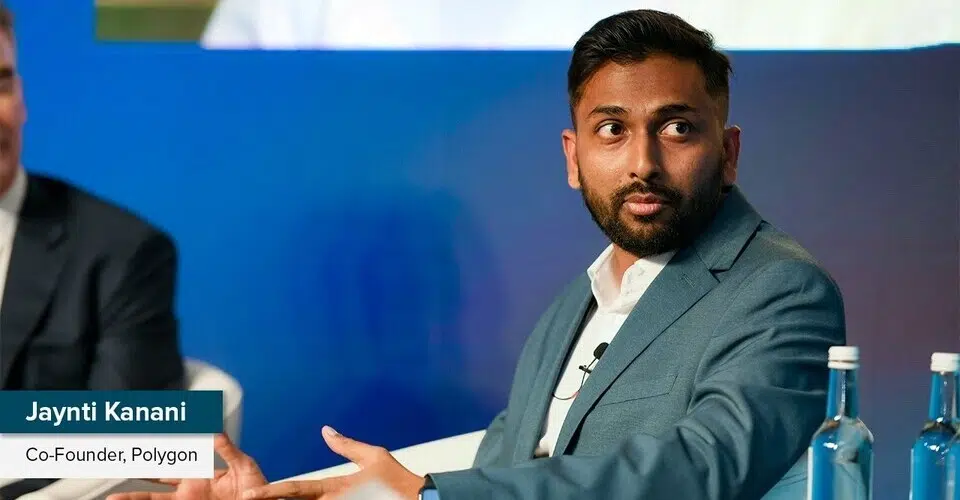Best 17 DApp Developers Today

The world of blockchain and decentralized applications (DApps) is being shaped by brilliant developers whose innovation, leadership, and technical skill set new standards across the industry.
Here is an updated and ranked list of the top DApp developers globally, based on open-source contributions, founding tech startups (while still actively coding), influential tech writing and speaking, impactful work at major blockchain organizations, and achievements in coding competitions:
- Dieter Shirley
- Juan Benet
- Dan Larimer
- Christian Reitwiessner
- Tim Coulter
- Nick Johnson
- Alex Gluchowski
- Hayden Adams
- Muneeb Ali
- Dan Finlay
- Péter Szilágyi
- Jaynti Kanani
- Fabian Vogelsteller
- Kevin Owocki
- Dave Balroop
- Eli Ben-Sasson
- Bryan Pellegrino
Now, let’s delve deeper into their remarkable contributions and impact.
Dieter Shirley

Nationality: Canadian
Dieter “dete” is a pioneering blockchain developer best known as the co-creator of CryptoKitties and the author of the ERC-721 non-fungible token (NFT) standard. Based in Vancouver, Canada, Shirley was the CTO at Axiom Zen when he helped launch CryptoKitties in late 2017 – the viral DApp that introduced NFTs and digital collectibles to a mainstream audience.
To realize CryptoKitties on Ethereum, Dieter drafted ERC-721, the proposal that defined a standard for unique, non-fungible tokens, enabling a whole new class of DApps from art to gaming. He then co-founded Dapper Labs (spun out of Axiom Zen) and oversaw the development of Flow, a purpose-built blockchain for high-performance apps like NBA Top Shot. As Chief Architect of Flow, he has continued to innovate in scaling and UX (e.g., Flow’s Cadence smart contract language) to support millions of daily NFT transactions.
- Linkedin: Dieter Shirley
- X (Twitter): @dete73
- Github: dete
Juan Benet
Nationality: Mexican-American
Juan is the inventor of the InterPlanetary File System (IPFS) and founder of Protocol Labs, making him a pivotal figure in decentralized web infrastructure. After studying at Stanford, Benet created IPFS in 2015 as an open-source protocol for distributed file storage and sharing, aiming to make the web faster and more censorship-resistant.
He later launched Filecoin, a blockchain-based storage network that incentivizes users to contribute disk space, raising one of the largest ICOs in 2017. Juan’s focus on decentralized data has provided critical backbone technology for many DApps (for example, IPFS underpins most NFT and Web3 storage). Through his research lab and frequent speaking, Benet advocates for a more open, user-controlled internet — solidifying his influence as a top innovator bridging blockchain and web technology.
- Linkedin: Juan Benet
- X (Twitter): @juanbenet
- Github: jbenet
Dan Larimer
Nationality: American
Dan is an American software programmer and serial blockchain innovator who has founded multiple influential platforms. He created BitShares in 2014 and co-founded Steemit in 2016, a social media blockchain that rewards users with cryptocurrency. Larimer also co-founded Block.one and was the lead architect of EOSIO, a high-performance smart contract platform launched in 2018.
Notably, he invented the Delegated Proof-of-Stake (DPoS) consensus algorithm and Graphene technology, which have powered a wave of subsequent blockchains. Dan is known for his hands-on coding (often going by the handle “bytemaster”) and for pushing the boundaries of blockchain scalability and governance.
Despite moving between projects, his open-source contributions and ideas — from DPoS to decentralized autonomous organizations — have left a lasting impact on the DApp ecosystem.
- Linkedin: Dan Larimer
- X (Twitter): @bytemaster7
- Github: bytemaster
Christian Reitwiessner

Nationality: German
Dr. Christian Reitwiessner is the creator of Solidity, Ethereum’s primary smart contract programming language, and a leader in formal verification for DApps. As an Ethereum Foundation team member, Christian co-designed Solidity in 2014–2015 and then led its development, establishing the language that enabled developers worldwide to write decentralized applications.
He also spearheaded efforts in smart contract security, including developing formal verification and SMT tools to mathematically prove properties of smart contracts. Reitwiessner’s work on zkSNARKs integration (for example, the ZoKrates toolbox) helped bring zero-knowledge proofs to Ethereum developers. Known for his methodical and research-driven approach, Christian often speaks at academic and Ethereum events about making smart contracts more secure and robust.
By creating and continually improving Solidity, Reitwiessner has been central to the DApp revolution – empowering programmers to express complex decentralized logic with relative ease.
- Linkedin: Christian Reitwiessner
- X (Twitter): @ethchris
- Github: chriseth
Tim Coulter
Nationality: American
Tim is the creator of the Truffle Suite, one of the earliest and most widely-used developer toolkits for Ethereum. He founded Truffle in 2015 to provide a framework for building, testing, and deploying smart contracts, which quickly became the go-to environment for Ethereum developers.
The Truffle Suite drastically improved developer productivity and confidence by introducing automated testing and local blockchain simulations. Under Coulter’s stewardship, Truffle’s open-source tools grew to hundreds of thousands of downloads, supported by ConsenSys, and were integral during the ICO era and beyond. Tim’s emphasis on clear documentation and community support helped cultivate a generation of DApp builders. Even as new tools emerged, Truffle’s influence is evident in many modern Ethereum development practices.
By lowering the barrier for entry-level and enterprise developers alike, Coulter has played a pivotal role in expanding the global Ethereum developer ecosystem.
- Linkedin: Tim Coulter
- X (Twitter): @timothyjcoulter
- Github: tcoulter
- Website/Blog: timothyjcoulter.com
Nick Johnson
Nationality: New Zealander
Nick is the founder and lead developer of the Ethereum Name Service (ENS), which provides decentralized .eth domain names as human-readable addresses for crypto wallets and resources. An Ethereum Foundation alum originally from New Zealand, Nick proposed and built ENS in 2017 as a solution to the usability problem of long hexadecimal addresses.
He guided ENS from a simple smart contract auction system for domain registration to a full-fledged decentralized naming infrastructure now governed by a DAO. Johnson’s work on ENS included writing smart contracts in Solidity, developing the Manager dApp, and later porting ENS to work across multiple blockchain networks. Prior to ENS, Nick was a core developer on Ethereum. His emphasis on open-source and community collaboration helped ENS become one of Ethereum’s most integrated services, resolving millions of names.
- Linkedin: Nick Johnson
- X (Twitter): @nicksdjohnson
- Github: Arachnid
Alex Gluchowski

Nationality: Ukrainian
Alex is the co-founder and CEO of Matter Labs, the team behind zkSync, a leading zero-knowledge rollup for Ethereum. Originally from Ukraine, Gluchowski possesses a strong engineering background and has been a vocal proponent of zero-knowledge proof technology as the ultimate solution for blockchain scaling and privacy.
He is also known for engaging with the Ethereum community on decentralization ethos (recently proposing ideas for on-chain governance via “ZKCred” systems). By delivering a cutting-edge Layer-2 platform and pushing the boundaries of cryptography, Gluchowski has emerged as a key figure enabling the next wave of sophisticated, scalable DApps on Ethereum and beyond.
- Linkedin: Alex Gluchowski
- X (Twitter): @gluk64
- Github: gluk64
Hayden Adams
The best ideas in crypto come from the community. Our job is to build around them.
Nationality: American
Hayden is the inventor of the Uniswap protocol, a breakthrough in decentralized finance that popularized automated market makers (AMMs). A mechanical engineer by training, Hayden learned Solidity in 2017 and, inspired by a post from Vitalik Buterin, developed Uniswap’s constant-product market maker smart contract.
He launched Uniswap on Ethereum in 2018, enabling users to swap tokens trustlessly through liquidity pools. The platform’s elegant simplicity and open-source code sparked a DeFi revolution, with Uniswap now facilitating billions in trading volume and inspiring many AMM forks. Adams, as CEO of Uniswap Labs, has continued to iterate on the protocol (Uniswap v2, v3) while advocating for decentralization in exchange technology.
Named to Forbes’ “30 Under 30” for finance, Hayden’s journey from novice coder to DeFi pioneer exemplifies the impact a single developer can have in the DApp ecosystem.
- Linkedin: Hayden Adams
- X (Twitter): @haydenzadams
- Github: haydenadams
Muneeb Ali

Nationality: Pakistani
Muneeb is the co-founder of Stacks (formerly Blockstack), a platform that brings smart contracts and DApps to the Bitcoin network. Born and raised in Pakistan, Muneeb earned his Ph.D. in Computer Science from Princeton and has long been an advocate for a user-owned internet.
He started Blockstack in 2013 as a decentralized identity and storage network, which evolved into the Stacks blockchain by 2018 – introducing the novel concept of Proof of Transfer to anchor Stacks’ security to Bitcoin. A meticulous builder and CEO, he ensured Stacks was one of the first SEC-qualified token offerings, reflecting his emphasis on regulatory compliance in decentralization. Muneeb also contributes to research and is vocal through blogs and podcasts about Web3, often discussing how Bitcoin can be extended beyond payments.
Through his blend of technical and entrepreneurial leadership, he has opened up Bitcoin’s ecosystem to new functionalities, bridging the gap between the world’s largest cryptocurrency and the DApp world.
- Linkedin: Muneeb Ali
- X (Twitter): @muneeb
- Github: muneeb-ali
- Website/Blog: muneeb.com
Dan Finlay
Nationality: American
Dan is a co-founder and lead developer of MetaMask, the flagship browser extension wallet that has onboarded millions of users to Web3. Along with Aaron Davis, Dan started MetaMask in 2016 at ConsenSys, envisioning an easy way for users to interact with Ethereum DApps through their web browser. As a JavaScript developer passionate about decentralization, he helped architect MetaMask’s intuitive interface and open-source codebase, which manages keys and transactions for Ethereum and now many other networks.
Finlay has remained a public face of MetaMask’s development, engaging with the community on feature requests, security improvements, and the challenges of usability. Beyond the wallet itself, he advocates for standards like EIP-1193 (Ethereum provider API) to ensure DApp compatibility across wallets.
By relentlessly focusing on user experience and developer integration, Dan Finlay’s work has been critical in making the decentralized web accessible — effectively serving as the bridge between everyday users and the rich world of DApps.
- Linkedin: Dan Finlay
- X (Twitter): @danfinlay
- Github: danfinlay
Peter Szilagyi
Nationality: Hungarian
Péter is a software engineer who leads the development of Geth (Go-Ethereum), the most popular Ethereum node software. Based in Hungary, Szilágyi took over as Geth team lead at the Ethereum Foundation in 2015 and has since been instrumental in maintaining and optimizing the Ethereum network’s core infrastructure.
He and his team have managed upgrades for every hard fork, improved client performance, and introduced features like light clients and snapshot sync to help Ethereum scale. An avid open-source contributor, Péter is known in the community for his thoughtful technical blog posts and for rigorously reviewing code that underpins billions of dollars in DApps. His decade-long dedication to Ethereum’s stability and growth — often working behind the scenes — has been critical to the platform’s success.
In the unsung hero category of blockchain, Szilágyi’s impact as the guardian of Ethereum’s main client cannot be overstated.
- X (Twitter): @peter_szilagyi
- Github: karalabe
Jaynti Kanani

Nationality: Indian
Jaynti is the co-founder of Polygon (Matic Network), one of the most widely adopted scaling solutions for Ethereum. Hailing from India, Kanani was a data scientist who entered the Ethereum scene in 2017 and quickly became involved in tackling scalability.
Jaynti was hands-on in writing Polygon’s initial code — from the consensus engine to the bridge contracts — and authored the project’s technical whitepaper. Under his technical guidance, Polygon grew into a hub that now offers multiple scaling options (Plasma, zkRollups, etc.) and hosts a vast DApp ecosystem with low fees and fast transactions.
Kanani served as CEO of Polygon Technology, and in 2022 he stepped back from daily operations to focus on new startup ideas, having seen Polygon become a top 10 crypto project.
- Linkedin: Jaynti Kanani
- X (Twitter): @jdkanani
- Github: jdkanani
Fabian Vogelsteller
Nationality: German
Fabian is an early Ethereum developer renowned for his foundational open-source contributions. Working at the Ethereum Foundation in its early years, Fabian created the Mist browser and Ethereum Wallet.
He also developed web3.js, the crucial JavaScript library that allows developers to build DApps by interacting with the Ethereum API. In 2015, Vogelsteller (in collaboration with Vitalik Buterin) proposed the ERC-20 token standard, which became the bedrock for nearly all tokens issued during the ICO boom and beyond. After Ethereum, Fabian co-founded LUKSO, a blockchain for digital lifestyle and fashion, bringing blockchain to new industries.
Vogelsteller’s blend of technical skill and vision for usability has made him one of the most impactful developers in lowering the barrier to entry for both DApp developers and users.
- Linkedin: Fabian Vogelsteller
- X (Twitter): @feindura
- Github: frozeman
Kevin Owocki

Nationality: American
Kevin is the founder of Gitcoin, a platform that has funded and nurtured open-source projects in the Ethereum ecosystem and beyond. Based in Colorado with a background in computer science, Kevin launched Gitcoin in 2017 to address the sustainability of open-source development by enabling crowdfunding through bounties and grants. The platform, under Owocki’s stewardship, popularized Quadratic Funding via its Gitcoin Grants rounds, directing millions of dollars to public goods and key DApp infrastructure (libraries, tooling, research) in a decentralized manner.
After exiting the CEO role in 2022, Kevin continues to evangelize for open-source and leads Supermodular, focusing on building modular tools for positive-sum outcomes. His impact on the culture and funding of Web3 development cements his legacy as a top DApp ecosystem builder.
- Linkedin: Kevin Owocki
- X (Twitter): @owocki
- Github: owocki
- Website/Blog: owocki.com
Dave Balroop
Nationality: American
Dave is a seasoned technology executive and CEO of TechUnity, where he leads innovation across AI, cybersecurity, and decentralized applications (DApps).
With extensive experience in enterprise systems and emerging technologies, he actively supports the development of next-generation decentralized platforms. In his article A Developer’s Guide to Building DApps on Web 3.0, he outlines practical strategies for developers to transition from Web2 to Web3, including smart contract implementation and tokenization. Balroop also mentors startups and collaborates with universities, VCs, and M&A firms to scale disruptive DApp-based solutions worldwide.
- Linkedin: Dave Balroop
Eli Ben-Sasson
Nationality: Israeli
Dr. Eli Ben-Sasson is a computer scientist and co-founder of StarkWare, and a pioneer in bringing zero-knowledge proof technology to blockchain scalability. As a professor at Technion, Ben-Sasson co-invented zk-STARKs, a form of cryptographic proof that does not require a trusted setup.
In 2018 he co-founded StarkWare Industries to apply this research to real-world applications, leading to the development of StarkEx and StarkNet, a general-purpose Layer-2 network on Ethereum. Eli’s team has open-sourced crucial components such as the Cairo programming language for writing provable programs. Earlier, he was also a founding scientist of Zcash, contributing to the first practical zk-SNARKs. Ben-Sasson’s influence extends from academic theory to hands-on engineering: his vision of using validity proofs to scale blockchains without sacrificing security or decentralization is becoming reality.
By marrying advanced math with system design, he has solidified his status as one of the top DApp ecosystem innovators.
- Linkedin: Eli Ben-Sasson
- X (Twitter): @EliBenSasson
- Github: elibensasson
Bryan Pellegrino
Nationality: American
Bryan is the co-founder and CEO of LayerZero, a protocol focused on enabling cross-chain communication between blockchains. Trained as a computer scientist, Pellegrino has been deeply involved in designing LayerZero’s messaging architecture, which allows DApps to interact across networks without relying on traditional bridges.
LayerZero underpins a growing number of omnichain applications, particularly in DeFi and NFT ecosystems, where state and liquidity must move seamlessly across chains. Pellegrino is known for publishing technical explanations of trust assumptions and security trade-offs in cross-chain systems, contributing to a clearer understanding of one of Web3’s most complex problem spaces.
- Linkedin: Bryan Pellegrino
- X (Twitter): @PrimordialAA
Wrap Up
These experts represent exceptional talent, making them extremely challenging to headhunt. However, there are thousands of other highly skilled IT professionals available to hire with our help. Contact us, and we will be happy to discuss your hiring needs.
Note: We’ve dedicated significant time and effort to creating and verifying this curated list of top talent. However, if you believe a correction or addition is needed, feel free to reach out. We’ll gladly review and update the page.
Frequently Asked Questions
Yes, dApp development remains relevant, especially in blockchain ecosystems like Ethereum, Solana, and Polygon. It drives innovation in finance, gaming, supply chain, and decentralized governance.
Salaries vary widely by region and expertise. In the US, experienced dApp developers often earn between $90,000 and $150,000 per year, while freelance rates range from $50 to $150 per hour.
Experts include blockchain engineers and developers with deep experience in smart contracts, Ethereum Virtual Machine (EVM) development, and decentralized architecture. Many are active contributors to open-source blockchain projects or work at Web3-focused companies.
Yes, demand for skilled dApp programmers exceeds supply. While more developers are learning Solidity, Rust, and Web3 frameworks, experienced professionals with real-world deployment experience remain relatively scarce.
Companies and organizations using dApps include Uniswap (decentralized exchange), Aave (DeFi lending), OpenSea (NFT marketplace), and Axie Infinity (gaming). Enterprises are also experimenting with dApps for supply chain, logistics, and identity management.
